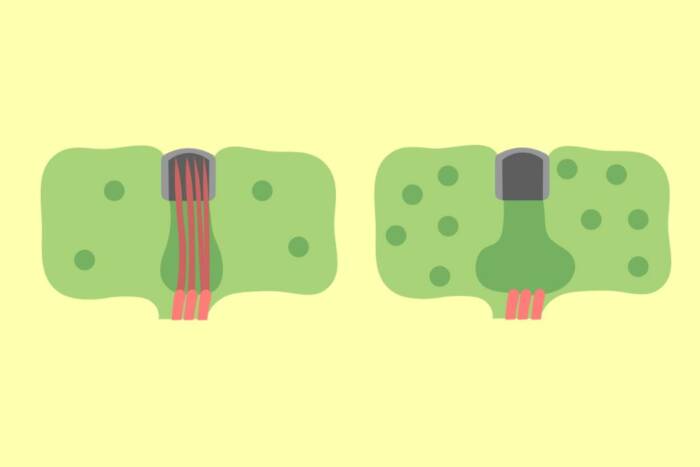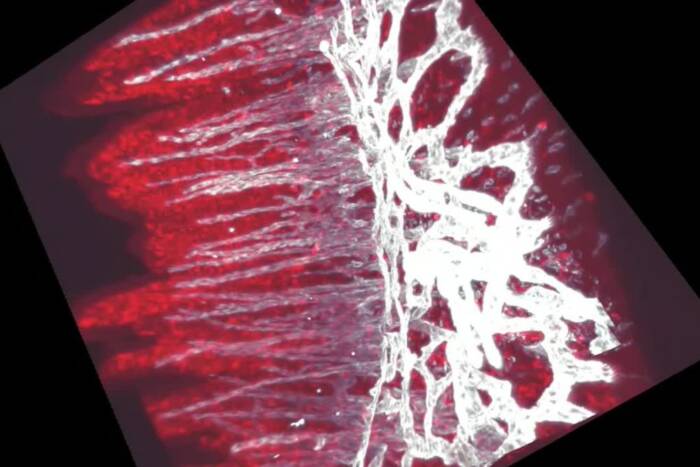Elaine Fuchs to receive 2012 March of Dimes Prize in Developmental Biology
Elaine Fuchs, Rebecca C. Lancefield Professor and head of the Laboratory of Mammalian Cell Biology and Development, will receive the 2012 March of Dimes Prize in Developmental Biology, a coveted award given to honor advancements in the science that underlies our understanding of birth defects. She will share the prize with Howard Green, George Higginson Professor of Cell Biology at Harvard Medical School.
The March of Dimes Prize, established in 1996 as a tribute to the pioneering virologist Jonas Salk, recognizes leaders in the field of developmental biology who offer hope for the prevention and treatments of some of the most serious birth defects and other human diseases.
 Fuchs and Green, lifelong colleagues, have revolutionized the understanding of skin biology, creating crucial advances in treating skin cancers and other diseases as well as severe burns. Their work pioneered innovative technologies that explain the molecular workings of skin stem cells and inherited skin disorders, including cancers and some birth defects.
Fuchs and Green, lifelong colleagues, have revolutionized the understanding of skin biology, creating crucial advances in treating skin cancers and other diseases as well as severe burns. Their work pioneered innovative technologies that explain the molecular workings of skin stem cells and inherited skin disorders, including cancers and some birth defects.
“Taken together, the research of Dr. Green and Dr. Fuchs has expanded medicine’s ability to diagnose and understand the basis of many skin disorders, from cancer to inherited disorders to severe burns,” said Joseph Leigh Simpson, senior vice president for research and global programs at the March of Dimes. “Their work has saved the lives of thousands of burn patients and we hope their work with skin stem cells will lead to new ways to prevent and treat birth defects.”
Fuchs uncovered the genetic basis of blistering skin diseases and deciphered the characteristics of skin stem cells that allow them to develop into distinct tissues and organs. She also pioneered the use of reverse genetics, which studies protein functions and then determines what diseases occur when the proteins malfunction. She studies how skin stem cells become activated to form hair and skin, how they adapt to heal wounds, and how mutations in the activation process can lead to skin cancers, such as pilomatrichomas and squamous cell carcinomas. Her work also holds promise for possible therapies for baldness.
“Elaine’s work has had a significant impact on the lives of those suffering from skin injuries and disorders and it has the potential to ultimately lead to new regenerative therapies. It is deeply gratifying to see her work recognized with this award,” says Marc Tessier-Lavigne, president of The Rockefeller University.
In addition to the March of Dimes Prize, Fuchs has received a number of honors and awards, including the 2011 Albany Medical Center Prize in Medicine and Biomedical Research, 2011 Passano Prize, 2011 Madison Medal, 2010 L’Oréal-UNESCO Award in the Life Sciences, and the 2009 National Medal of Science. She is a member of the National Academy of Sciences and its Institute of Medicine, the American Academy of Arts and Sciences and the American Philosophical Society.
Fuchs and Green will receive the prize at the annual meeting of the Pediatric Academic Societies in Boston this April. The prize consists of a cash award of $250,000 and a silver medal in the design of the Roosevelt dime, in honor of President Franklin D. Roosevelt, who founded the March of Dimes.


